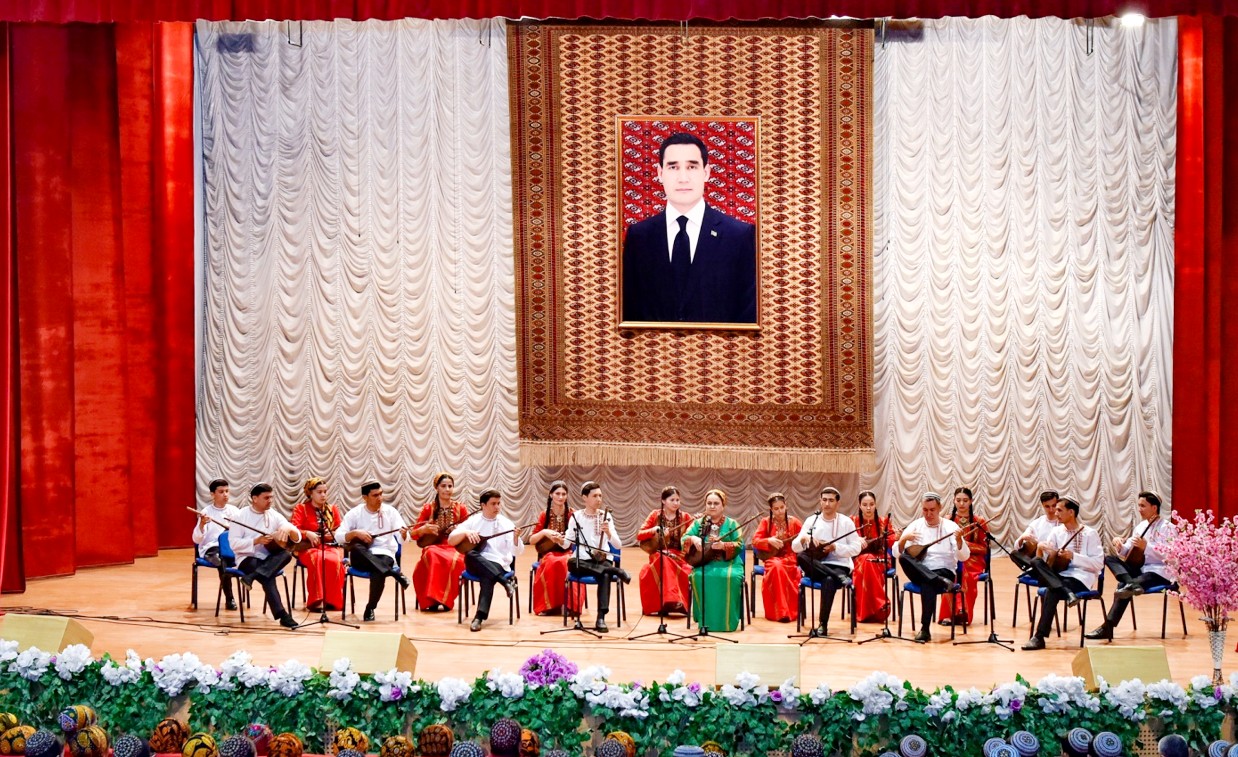The Special Music Boarding School under the Turkmen National Conservatory named after M. Kulieva hosted a concert entitled “Halypalaryň ussatlyk mekdebi” (“School of Master’s skill”), dedicated to the life and work of the outstanding musician Purli Sariev.
Coming from the family of the famous musician Sary-Bakhshi, a famous dutar playert and melodist composer who became one of the founders of the orchestra of Turkmen folk instruments, Purli Sariev devoted his life not only to performing skills, but also to the education of new talents. He generously shared his experience and knowledge with young musicians, seeking to comprehend a virtuoso game on the dutar.
As is known, the School of Mentoring of Dutarchi is based on the sacred process of transmitting skill secrets, where the subtleties of performing art, unique methods of the game and a deep understanding of the traditions of national art are carefully stored and transmitted from generation to generation.
The concert, organized by the Department of Intangible Cultural Heritage of the Ministry of Culture of Turkmenistan and the Central Council of the Youth Organization named after Makhtumkuli, became a vivid example of deep continuity in the Turkmen musical culture.
The program featured well-known works for dutar and gijak, reflecting the rich palette of Turkmen national music. Pupils of the school, students and teachers of the conservatory performed original compositions by Purli Saryev, such as "Lälezar bolar", "Şatlyk", "Türkmenistanym", as well as other significant works that make up the golden fund of the Turkmen musical heritage.
The art of Bakhshi represents an invaluable layer of Turkmen culture, being a unique fusion of spirituality and folklore. This is a living heritage that carefully preserves folk traditions and experience, which is enriched and improved by each new generation of performers. In this context, mentoring is not just a method of teaching, but a sacred tradition of transferring skills from teacher to student.








